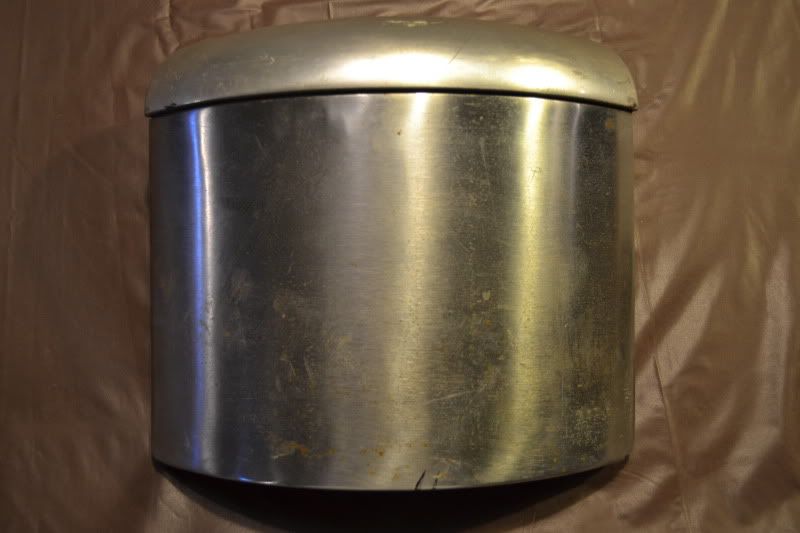I am just done with all the polished aluminum for my current Brunswick Anniversary restoration. Here is a sample:


Here is my process:
All parts are sand blasted with a light medium.
Start with 80 grit on the orbital, dry and then wet.
then 100, grit on the orbital, dry and then wet.
then 150, grit on the orbital, dry and then wet.
then 220, grit on the orbital dry and then wet.
then 400, wet by hand
then 600, wet by hand
then 800, wet by hand
then 1000, wet by hand
then 1500, wet by hand
Then using the blue rouge on my polishing wheel and I get what is pictured. The counter was only polished because it was in very nice condition.
I am interested in some other people's methods as I want to know if there is anything I can do to help my process. I look forward to learning some new stuff. Thanks for looking and for any info provided in this thread.
Trent from Toledo


Here is my process:
All parts are sand blasted with a light medium.
Start with 80 grit on the orbital, dry and then wet.
then 100, grit on the orbital, dry and then wet.
then 150, grit on the orbital, dry and then wet.
then 220, grit on the orbital dry and then wet.
then 400, wet by hand
then 600, wet by hand
then 800, wet by hand
then 1000, wet by hand
then 1500, wet by hand
Then using the blue rouge on my polishing wheel and I get what is pictured. The counter was only polished because it was in very nice condition.
I am interested in some other people's methods as I want to know if there is anything I can do to help my process. I look forward to learning some new stuff. Thanks for looking and for any info provided in this thread.
Trent from Toledo
Last edited:


